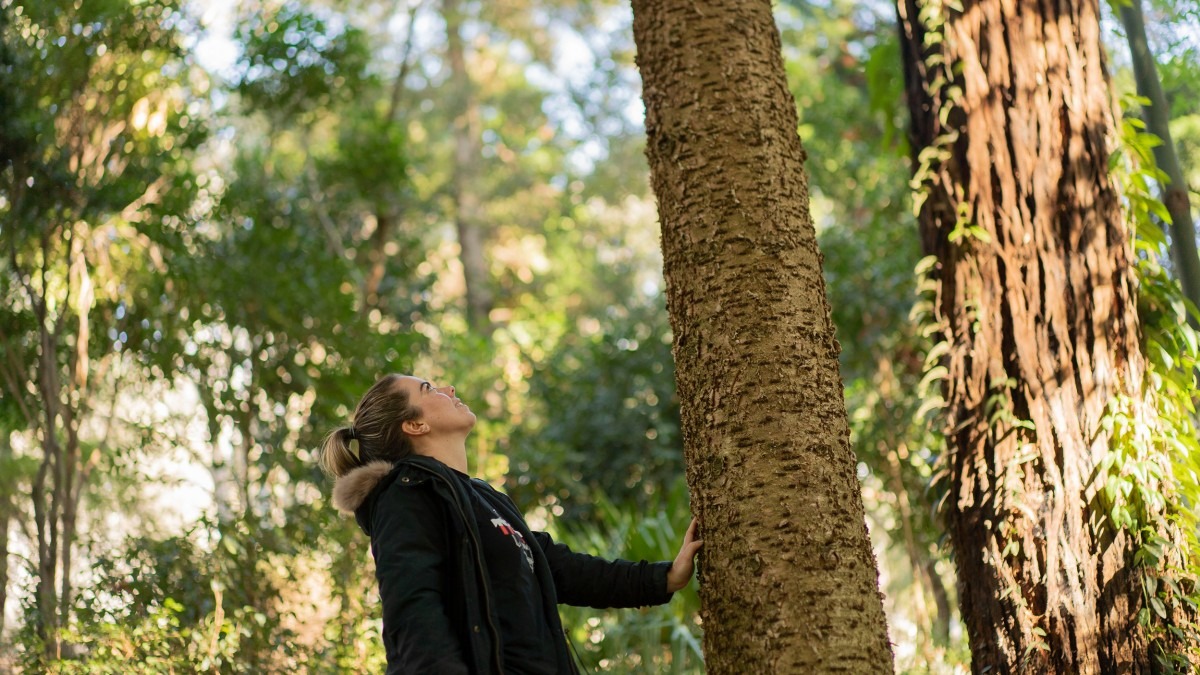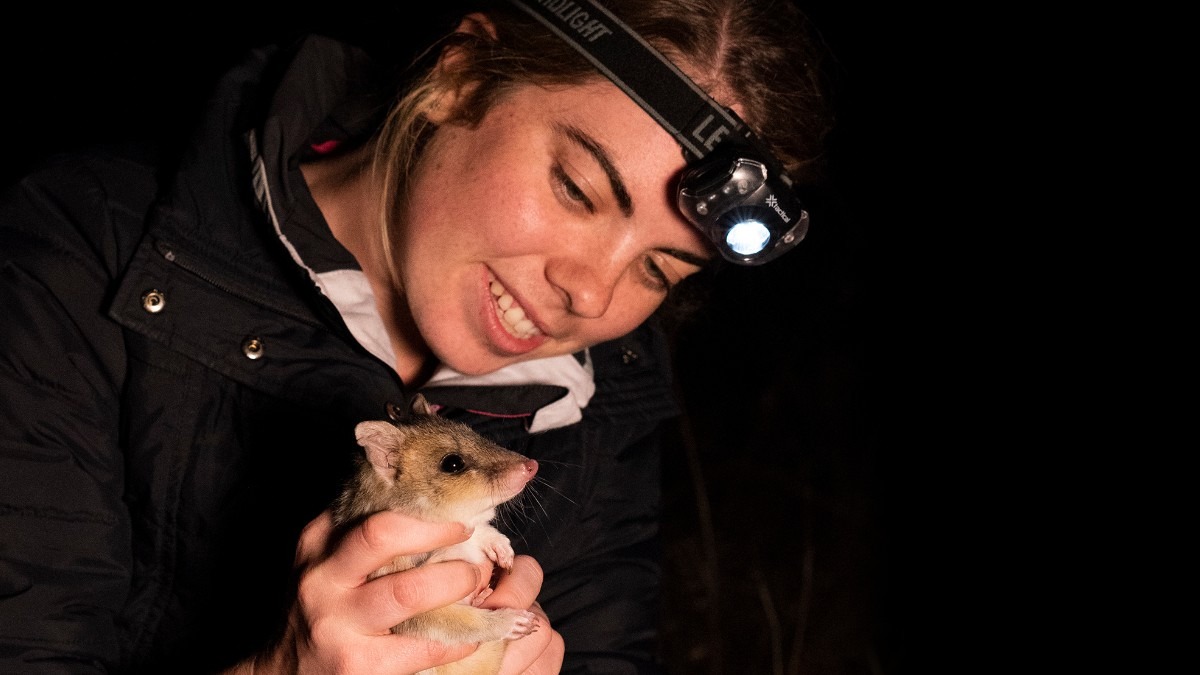
Finding her way to care for Country
Kristi Lee, a Githabul Bundjalung woman and ANU graduate, has received the ‘Caring for Country’ award at the 2019 ACT NAIDOC Awards.
Kristi meets me among the bunya pine trees at the National Botanic Gardens, just opposite the ANU campus. She tells me that in her Country, west of Byron Bay, the Githabul people would gather with neighbouring tribes for a feast on the huge pine cones from these trees. This, she points out, is similar to the gathering for bogong moth ceremonies in Ngunnawal Country.
Kristi’s journey of study, work and culture is largely defined by these two places—Ngunnawal Country and Githabul Country—making these gardens a fitting place to talk about her relationship to the land.
Kristi grew up in Canberra, away from Githabul Country, where her Pa is from. All her life she would ask him about her culture, desperate to learn stories, language and history. Her Pa grew up in a time when practicing Indigenous culture was discouraged, and language was not allowed to be spoken, which meant that much was lost between generations.
“They would say things like ‘But you don’t look Aboriginal’, or ‘What percentage are you?’ I started thinking their perception might be the right perception — maybe I’m an imposter?”
These experiences compelled Kristi to hide her identity from classmates and shook her confidence in her Aboriginality.
It was Kristi’s love of nature that led her to ANU, where she studied ecology and conservation at the Research School of Biology and Fenner School of Society and Environment. Kristi was fascinated by wildlife conservation management, but it wasn’t until she studied two Fenner School courses that she realised she could bring together her love of wildlife ecology with her cultural identity.
“I did a class which was all about combining cultural knowledge and biodiversity management, and how you would engage with Traditional Custodians when managing landscapes and reserves.
“Another course that made an impact on me was Fire in the Environment. As well as talking about the western systems of fire management, we talked about traditional knowledge and cultural burning, acknowledging that fire management is something that has been practiced for thousands of years by Aboriginal people.”
Kristi describes a day that was pivotal for her.
“We did a field trip with the Murumbung Rangers. They are the ACT Parks and Conservation Indigenous team who work across Canberra’s reserves. I met them and I said, ‘I want to do what they do.’”
And so she did. A year later, Kristi was working with the same Murumbung Rangers at the Woodlands and Wetlands Trust, an NGO that looks after Mulligans Flat Woodland Sanctuary and Jerrabomberra Wetlands in Canberra. Initially working as a guide, sharing stories of wildlife conservation with the community, Kristi worked hard to incorporate cultural knowledge into her tours and activities. She went on to run Reconciliation Day events at the wetlands with local Indigenous businesses; to collaborate with ACT Parks in preparing habitat for threatened bettongs and quolls; and to consult with the local Ngunnawal community on conservation projects. Kristi even got to work with David Attenborough’s film crew capturing footage of a Bundjalung totem animal, the echidna (bunninj).
Kristi says she’s grateful to the many people who shared their cultural knowledge, language and stories with her on her journey to receiving the NAIDOC award, especially as she was so far away from her mob and Country.
“Even though I’m not on my ancestral lands, it still brings a sense of identity, belonging and connection to culture, and it has driven me to want to learn more about my own mob, too.”
Find out more about a degree in biology or environmental sustainability, as well as opportunities in science for Indigenous students.




